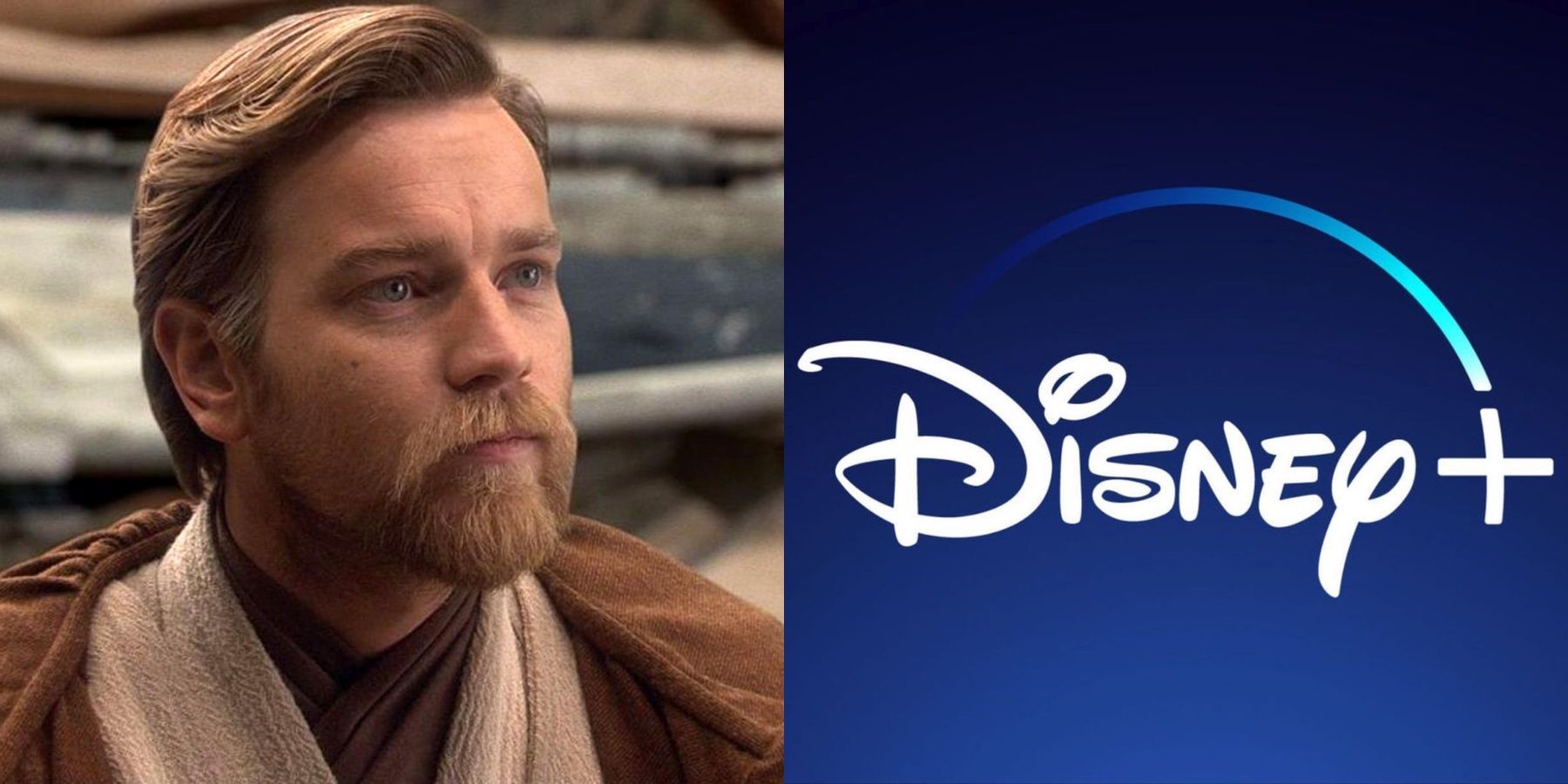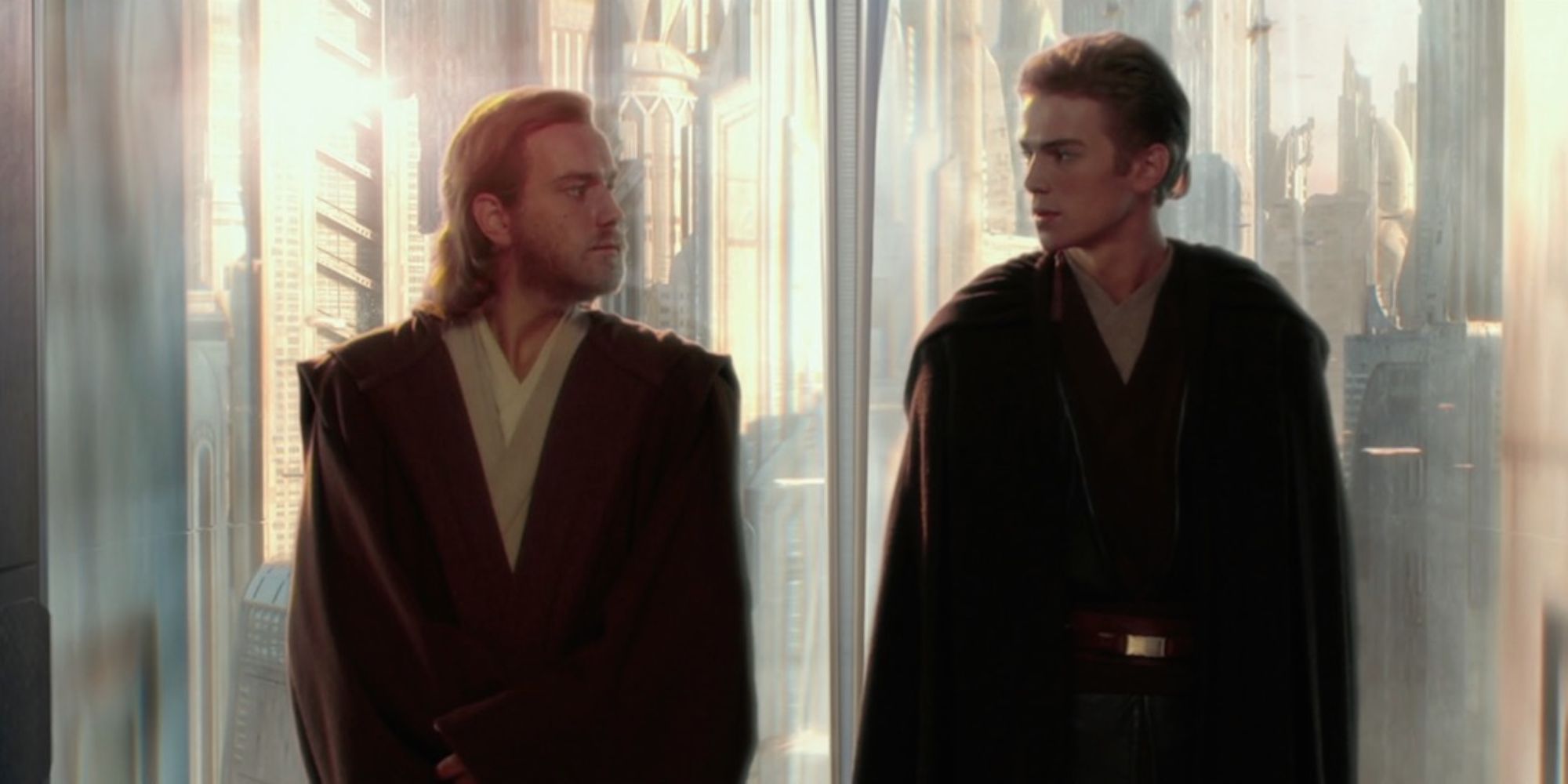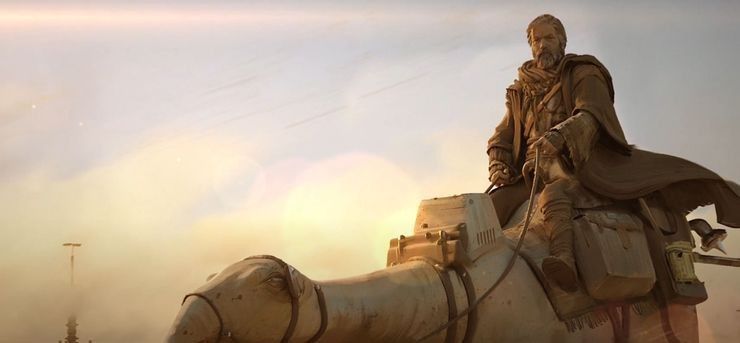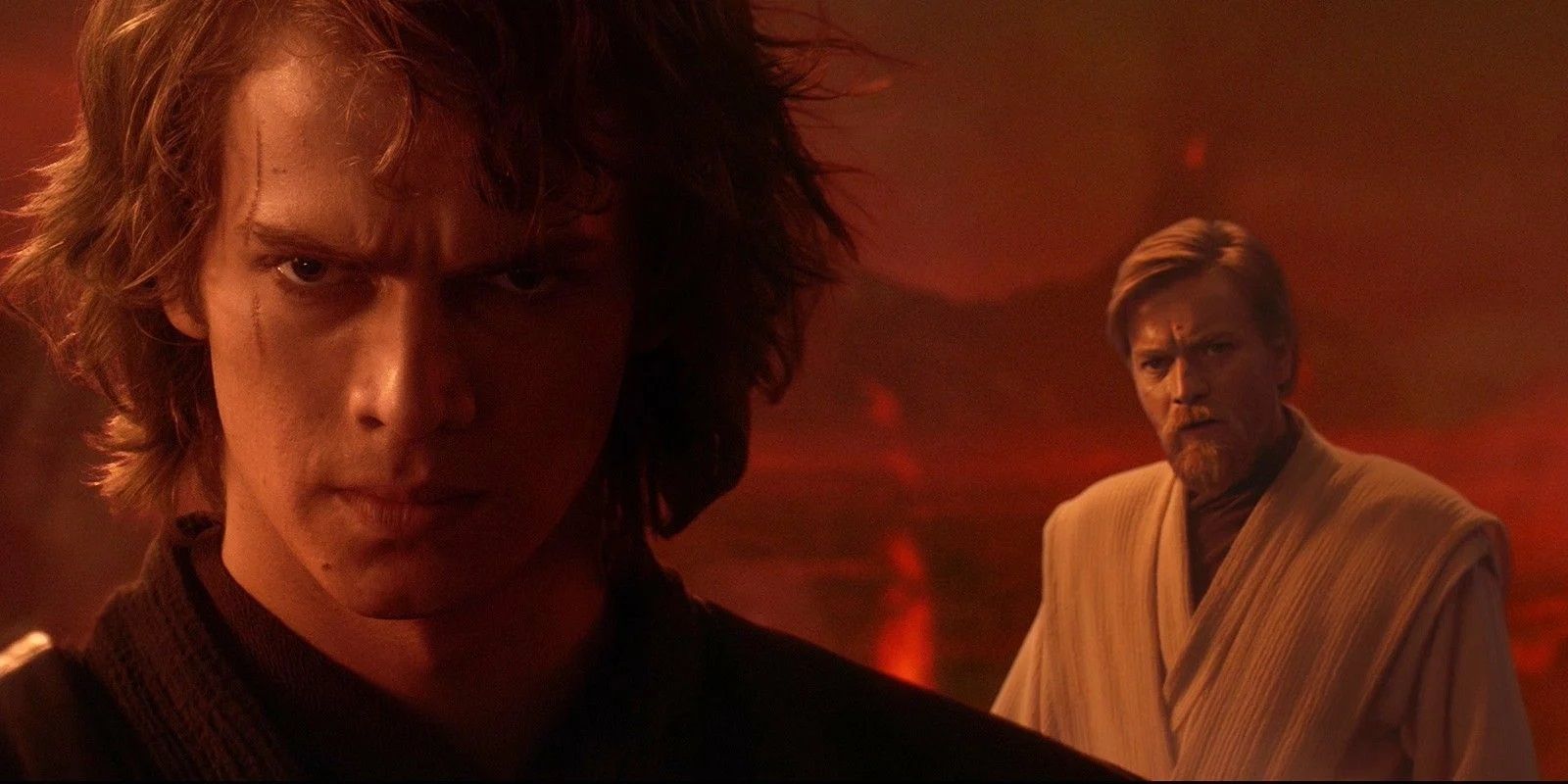Since rumors of a Star Wars: Obi-Wan live-action project surfaced years ago, appetite has grown amongst fans to see the project come to life. Much of that anticipation was born from the idea of Ewan McGregor reprising his role as Obi-Wan Kenobi. While the Prequel Trilogy was received poorly by fans and critics alike, McGregor's performance as Obi-Wan is seen as one of the few successes.
When it was revealed the project would take the form of a Disney+ show, fans began fervently speculating. As more information was revealed that challenged established canon, particularly the notion that Obi-Wan would cross paths with Darth Vader, concerns grew. Yet, the show is the perfect type of prequel. It serves a fan-favorite character's story by picking up the reins in a time of emotional turmoil, with Obi-Wan at his lowest point.
As far as fans knew, Obi-Wan retreated to Tatooine to become the wily old hermit that Luke encounters in A New Hope. Yet, there's an obvious divergence in Obi-Wan's personality between the prequels and A New Hope. Some fans found it difficult to swallow Luke Skywalker's transformation between the original and sequel trilogies, yet Obi-Wan escapes such scrutiny because audiences were introduced to his more mercurial phase first.
The show offers the perfect opportunity to delve into the character's state of mind, his relationship with the force and how he deals with the trauma and guilt of losing everything in Palpatine's rise to power. Guilt and grief consumed Anakin during the prequels, they were a catalyst in his downfall. Watching Obi-Wan wrestle with the same emotions that destroyed his padawan will create some compelling parallels between the two. Considering the difficult relationship the two endured at times as mentor and mentee, this could be a great way to investigate Obi-Wan's own failures as a teacher.
The specter of Qui-Gon Jinn often hangs over Obi-Wan, as fans frequently opine he had a more natural connection to Anakin as well as seeing the failures of the Jedi council. Yet, it might be more effective for Qui-Gon not to return. "I have failed you Anakin," Obi-Wan declares during their fateful duel in Revenge Of The Sith. Much of his legacy from the prequel trilogy is dogged by failure. His decision to watch over a young Luke Skywalker on Tatooine can be traced to the lingering feeling of responsibility he feels for being unable to prevent Anakin's turn to the dark side and Padme's death. As Luke Skywalker points out in The Last Jedi, the legacy of the Jedi is failure - despite their legendary status. Yet, the on-screen series rarely reconciles with this issue outside of Luke's discussion with Rey. Even in the original trilogy, Obi-Wan appears guarded over acknowledging his responsibility when discussing it with Luke.
It's often joked about that dropping Luke on the planet his father was born on, using the same surname, isn't exactly hiding. Though it's an example of taking canon a little too seriously, it's likely going to be something the show indirectly tackles. Fans will already know from Rebels that Obi-Wan's presence inadvertently brings Maul to Tatooine - endangering Luke. If he is to cross paths with Vader once more and venture off-world, the chances of someone following him back to Tatooine grows.
With his obligation to Luke born from his culpability over losing his parents, it goes without saying that he could be compelled to help the burgeoning Rebellion out of guilt for the fall of the Republic. Rogue One made mention of Bail Organa's existing relationship with Obi-Wan and there's a good chance their paths could cross again. Where this series can thrive is showing a conflicted Obi-Wan who feels responsible for the state of the galaxy, yet ultimately powerless without the strength of the Jedi Order to bring about any tangible change.
The series will also offer a shot at redemption for the actors. While Obi-Wan and Darth Vader achieve their own redemption in Return Of The Jedi, Hayden Christensen's performance in the prequel trilogy is much maligned. Christensen's depiction of Anakin was derided by fans and critics alike. Whether this was down to direction, the writing, the actor, or indeed all of the above, is up for debate. With so many instances of the prequels failing to impress, it offers Christensen a slight reprieve. Nevertheless, Obi-Wan is an opportunity to salvage his reputation and alter his own legacy. Redemption permeates throughout Star Wars, so it would be fitting for this series to achieve success and offer some to one of the biggest victims of the prequel trilogy's failure.
Despite some trepidation among older fans who hold the established canon of the Original Trilogy dear, there's a great deal more to be excited about. Obi-Wan can embellish, rather than dilute, the strength of established Star Wars lore. It has the potential to re-contextualize some of what was seen in the original trilogy, while revisiting a popular character in a time of emotional turmoil. Obi-Wan, and the Jedi, left a legacy of failure in the prequel trilogy. How the weight of that responsibility manifests will define how successful the show is.
Obi-Wan will stream exclusively on Disney+ in 2022




